I am sending data (images and pictures) over a socket server from a laptop to a raspberry pi in python3.7, and it works fine when the client and the server are both on the same device (the laptop), however when the transfer occurs between the computer and the raspberry pi, the image loses about half the data. No matter how many times I try, or how many times I change the bytes read in, the same incomplete pictures are output:
Here is the input pics I tested with
and here are the pictures after I send them to the rpi and they get sent back:
Here is my server code:
#!/usr/bin/env python
import random
import socket, select
from time import gmtime, strftime
from random import randint
imgcounter = 1
basename = "image8.jpg"
HOST = '0.0.0.0'
PORT = 9999
connected_clients_sockets = []
server_socket = socket.socket(socket.AF_INET, socket.SOCK_STREAM)
server_socket.setsockopt(socket.SOL_SOCKET, socket.SO_REUSEADDR, 1)
server_socket.bind((HOST, PORT))
server_socket.listen(10)
connected_clients_sockets.append(server_socket)
while True:
read_sockets, write_sockets, error_sockets = select.select(connected_clients_sockets, [], [])
for sock in read_sockets:
if sock == server_socket:
sockfd, client_address = server_socket.accept()
connected_clients_sockets.append(sockfd)
else:
try:
data = sock.recv(4096)
try:
txt = data.decode(encoding = 'UTF-16',errors = 'strict')
except:
txt = ""
#txt = str(data)
if data:
#print("recieved data",data.decode(encoding = 'UTF-16',errors = 'strict'))
if txt == 'SIZE 11907' :
print("correct")
if txt.startswith('SIZE'):
print('size?')
tmp = txt.split()
size = int(tmp[1])
print ('got size')
sock.sendall("GOT SIZE".encode(encoding = 'UTF-16',errors = 'strict'))
print ("done sending")
elif txt.startswith('BYE'):
print('bye')
sock.shutdown()
else :
print('image maybe')
myfile = open(basename, 'wb')
myfile.write(data)
print("saved")
data = sock.recv(40960000)
if not data:
myfile.close()
break
myfile.write(data)
myfile.close()
print("actually saved")
sock.sendall("GOT IMAGE".encode(encoding = 'UTF-16',errors = 'strict'))
sock.shutdown(socket.SHUT_RDWR)
except Exception as inst:
# print('sock broke')
print(inst)
sock.close()
connected_clients_sockets.remove(sock)
continue
imgcounter += 1
server_socket.close()
and then here is the client code:
#!/usr/bin/env python
import random
import socket, select
from time import gmtime, strftime
from random import randint
image = "download-1.jpg"
HOST = 'my_ip'
PORT = 9999
sock = socket.socket(socket.AF_INET, socket.SOCK_STREAM)
server_address = (HOST, PORT)
sock.connect(server_address)
try:
# open image
myfile = open(image, 'rb')
bytess = myfile.read()
print(bytess)
size = len(bytess)
message = "SIZE " + str(size)
# send image size to server
#sock.sendall("SIZE %s",size)
sock.sendto(message.encode(encoding = 'UTF-16',errors = 'strict'),(HOST, PORT))
answer = sock.recv(4096).decode(encoding = 'UTF-16',errors = 'strict')
print ('answer = ',answer)
# send image to server
if answer == 'GOT SIZE':
sock.sendto(bytess,(HOST, PORT))
#sock.sendall(bytess)
# check what server send
answer = sock.recv(4096)
print ('answer = ',answer)
if answer == 'GOT IMAGE' :
#sock.sendall("BYE BYE ")
sock.sendto("BYE BYE ".encode(encoding = 'UTF-16',errors = 'strict'),(HOST, PORT))
print ('Image successfully send to server')
myfile.close()
finally:
sock.close()
I have both scripts on both devices, and I first use the server on the rpi to transfer the picture there, and then I run the server on my local computer to transfer it back. Any idea why this happens?



